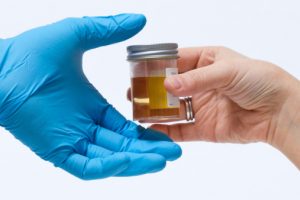 Sediment in urine is discovered during urine testing and refers to microscopic gritty particles or mucus in the urine. These particles floating in the urine are often comprised of different cell types and various debris that is shed from the internal urinary tract. Sediment in urine can be more prominent in people with urinary tract infections (UTI) and may contain bacteria, white blood cells, and protein.
Sediment in urine is discovered during urine testing and refers to microscopic gritty particles or mucus in the urine. These particles floating in the urine are often comprised of different cell types and various debris that is shed from the internal urinary tract. Sediment in urine can be more prominent in people with urinary tract infections (UTI) and may contain bacteria, white blood cells, and protein.
What causes sediment in urine?
Urinary tract infections (UTI): Thanks to a variety of bacterial and other pathological infections that affect the urinary tract system. The common mode of transmission is up through the urethra, and women are more predisposed due own to their short urethral length. Symptoms of a urinary tract infection include painful urination, increased urinary frequency, and abdominal pain.
Advertisement
Bladder stones: Masses of mineral deposits that develop when the minerals in concentrated urine crystallize, leading to incomplete emptying of the bladder. Small bladder stones may be eliminated without treatment, but larger variants need medication or surgical intervention. Urine accumulation in the bladder leading to stone development could occur due to prostate enlargement, bladder diverticula, as a result of radiation treatment, or due to some kinds of contraceptive devices.
Related: Bladder stones: Diet tips, treatment, prevention and natural remedies
Diabetes: A metabolic condition marked by high blood sugar levels. Diabetes often leads to kidney problems as well as a loss of sugar through the urine. This excess glucose (sugar) leaves the body in the form of sediment. Also, diabetes impacts fat metabolism and leads to the development of energy byproducts called ketones that may also be released with urine as sediment.
Hematuria: A medical term referring to the presence of blood in the urine, and is considered the most common cause of sediment in the urine. There are many different causes of hematuria including renal infarct, kidney diseases, trauma to the urinary system, or the excessive use of bladder or other urinary catheters.
Liver conditions: The liver is involved in many biological processes of the body, some of which lead the liver to produce a byproduct called bilirubin. This can lead to sediment in the urine.
Symptoms and treatment of sediment in urine
Sediment in urine is typically a symptom of another condition. Considering the number of different sediment in urine causes, symptomology differs from case to case. That said, there are several common symptoms that often present in conjunction with sediment in urine. These include:
- Pink or reddish urine color
- Pain during urination
- Frothy, foamy, or cloudy urine
- Increased urinary frequency
- Flank pain (uncommon)
- Antibiotics for the treatment of UTIs
- Specific medications or surgical procedures for the treatment of liver disease
- Certain therapies and medications for the treatment of kidney and bladder stones
Preventing sediment in urine
Advertisement
Abnormal levels of urine sediment are often the result of imbalances in protein metabolism, kidney disorders, or other biological conditions. By adhering to a healthy lifestyle that includes a balanced diet, getting regular exercise, and drinking plenty of water, you can keep these problems from occurring in the first place.
Choose to eat a diet rich in fruits and vegetables as well as foods abundant in antioxidants. They help to regulate metabolic processes, keeping your healthy and happy.
Related: Crystals in urine: Know the causes and treatment
